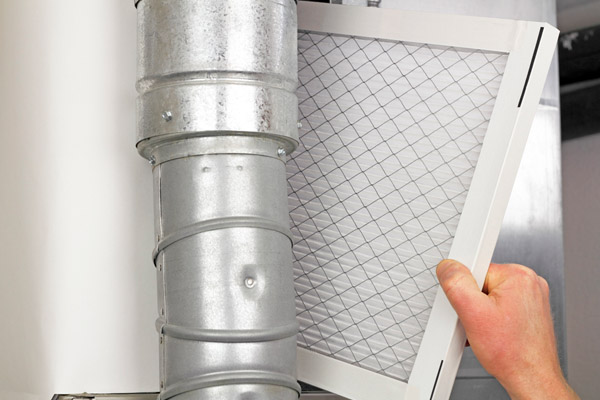What Is The Difference Between A Boiler And A Furnace?

Some homeowners tend to confuse boilers with furnaces. This is not surprising since both systems provide heating for a home or building. However, the main similarity ends there. Although heating is a common purpose for both systems, one is significantly different from the other. You will have to choose one system over the other, depending on your heating requirements and your setup. Therefore, it is crucial to understand the boiler vs. furnace, their differences, and their advantages.
Differences Between Boiler Heating Systems And Forced- Air Furnaces
In this article, we discuss some of the essential differences between these two heating systems.
What Is A Boiler?
A boiler is a large, closed container wherein water or some form of liquid is heated to generate vapor or steam. It is the primary component of most heating systems. It is also a major component that contributes to heat emission and heat distribution.
The use of water or liquid for heating is known as a hydronic heating or radiator system. The system, other than the boiler itself, is also composed of the baseboard, radiators, the pipe system, and the circulator pump. These are installed in different rooms and spaces to accommodate the distribution of heat. A residential boiler system can easily compose of a few or plenty of components depending on the number of rooms that a home has.

What Is A Furnace?
A furnace is a heating system that uses air to produce heat. The system will distribute this heated air to different rooms. Many also call this type of heating system a “forced-air heating system.” It forces cool or room-temperature air through a heat exchanger where the air is heated. The heated air then passes through an HVAC ductwork system to be distributed. There are three types of furnaces: horizontal, upflow, and downflow. They may use oil, electricity, gas, or induction.
What Are The Differences Between A Boiler And A Furnace?
The main difference between a boiler and a furnace is the way they operate. A boiler works by heating water inside a container or tank to produce warmth. The system then pushes hot water through a systems of pipes that run through the house or building. The hot water heats the pipes, which then generate heat to warm the rooms. A boiler heater can keep the building warm as long as it can produce hot water or steam.
A furnace heating system, on the other hand, utilizes a heat exchanger. This process heats up air (not fluid or water), which is then circulated throughout the home to keep it warm. The circulation is done using a blower motor, which pushes the air through the vents and ductwork.

Boiler Vs. Furnace: Energy-Efficiency
It takes more energy to heat up air than it does to heat up water. As such, furnaces will consume more fuel within a shorter period of time compared to boilers. In terms of cost, boilers often carry a higher price tag but may be more durable than furnaces. Of course, this will also depend on how well the unit is maintained.
Boiler: Pros And Cons
Below, we discuss the pros and cons that come with a boiler.
PROS
- Efficiency: In general, boilers use less fuel to produce heat, which means you will not pay more for the cost of energy.
- Less Noise: Boilers do not produce hot air that needs to be pushed throughout the system. Hence they are generally quieter compared to furnaces.
- Heat Consistency: Hot water or vapor produces more consistent heat than hot air does.
- Air Quality: Boilers do not move air like furnaces do, which means they will not distribute dust, pollen, and other particulates.
CONS
- Heat Only: Boilers only produce heat but will not cool your home. Furnaces cannot cool but the same system of ductwork can be used for a central cooling system.
- Installation: Boilers take more time and effort to install.
- Slow To Adjust Heating Temperature Changes: It takes a while for a boiler to transition when there are changes in the thermostat.
- Boiler Leak Hazard: Older or damaged boilers have an increased risk of leaking water or fluid, which can result in water damage later.
- Difficult Conversion: Changing your boiler system to a furnace heating system is very difficult and quite expensive, especially since it includes the installation of ductwork.

Furnace: Pros And Cons
Below, we discuss the pros and cons that come with using a furnace.
PROS
- Flexibility: Furnaces use electricity, natural gas, heating oil, and propane. There are also models available that are powered by solar or geothermal energy, but these tend to be uncommon.
- Fast-Acting: Furnaces can generate heat more quickly than boilers, which means they can warm up a home in a shorter period.
- Cost: Furnaces are fairly common, which means there are more units and models available. The number of furnace units in the market helps bring down the price.
- Minimal Leaks: Should a furnace leak, it will leak air, not water or fluid. As such, there is likely to be less damage (if at all) to the home.
- Zero Freezing Hazard: In areas that experience very low temperatures in winter, homes that rely on furnaces for heating do not run the risk of frozen pipes that can possibly burst. SInce boilers use water to heat, this is a risk that does exist with these heating systems.
CONS
- Noise: Furnace blowers produce a sound when they move air for distribution. Every time a furnace is turned on, it will make a noise.
- Heat Consistency: Heated air does not generate consistent heating compared to hot water or steam. This would explain why some rooms feel warmer or cooler than others.
- Air Quality: If air filters are not maintained or replaced regularly, indoor air quality will be reduced.
Call Point Bay Fuel For All Of Your Home Heating Requirements
 Ultimately, your choice between a boiler and a furnace will depend largely on your heating (and cooling) needs and the existing structure you have. If you are replacing an older heating system with a new one, you will be glad to know that new boiler and furnace models come with very high-efficiency ratings, which means better savings for you over the long term. If you are still undecided on which system to use, get in touch with your local HVAC contractor for professional advice.
Ultimately, your choice between a boiler and a furnace will depend largely on your heating (and cooling) needs and the existing structure you have. If you are replacing an older heating system with a new one, you will be glad to know that new boiler and furnace models come with very high-efficiency ratings, which means better savings for you over the long term. If you are still undecided on which system to use, get in touch with your local HVAC contractor for professional advice.
Point Bay Fuel is the area’s leading expert for heating and cooling services. Our NATE certified technicians have the experience to solve any of your home comfort problems in a fast, friendly, and knowledgeable manner. You can count on us to provide you with the most competitive prices in the area. Also, to ensure your satisfaction, we guarantee all of the work that we perform for you. Be sure to give Point Bay Fuel a call today to schedule a free, in-home estimate.
Contact us now by calling (732) 349-5059 to speak to one of our home comfort specialists!
